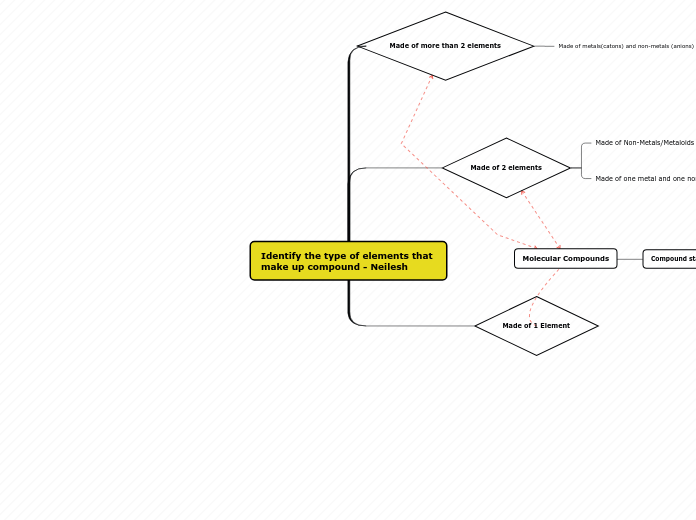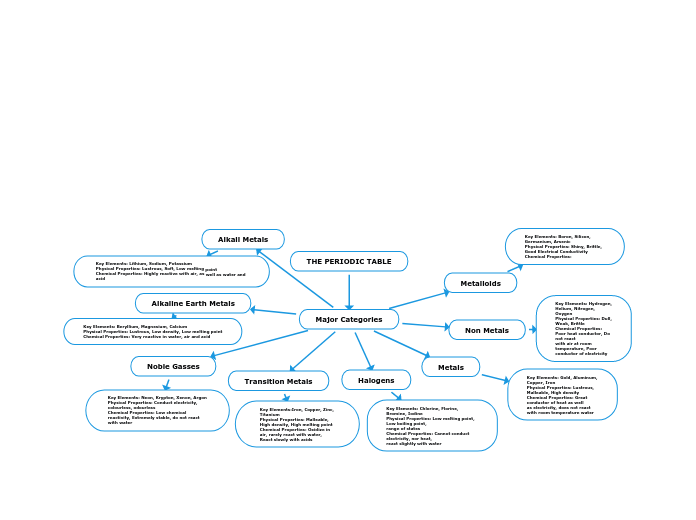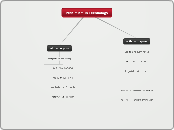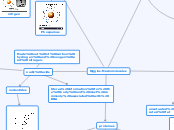Ѿ Δωδέκατέραρίθμερον
μνήμα
τέλα
Write Δωδέκατέραρίθμικον
Write Dodecarithma
Write Op. XII - Symphony No. 1
Write Op. XI - A Musical Grimoire
Write Op. X - His Holy Empire
Write Op. IX - Cosmographia Universalis
Write Op. VIII - Choir and Dance
Write Op. VII - Tennyson for Orchestra
Write Op. VI - String Quartet No. 1
Write Op. V - Beauty Concerto for Soprano and Violin
Write Op. IV - Things Change for Choir, Bass, and Piano
Write Op. III - Bel and the Dragon for Narrator, Hand Drum, Piano, and Flute
Write Op. II - Leaves for Wind Ensemble
Write Op. I - Poetry for Voice and Piano
Write Prolegomena
Write The Book of Preludes
Write Hymns
Write Prolegomenon to Any Future
Write Metaprolegomena
Write Proteurithmos
Write A Poetic Note
Write Metaprolegomenon
Write Preface
Tool
10,000 Days
Right in Two
Musica Universalises
The Book of Revelation
Hesiod's Theogony
Orphic Hymns
The Book of Genesis
P201-299 - Comparative Grammar
Index
§14 - Some Practical Matters
§13 - Mind in the Grip of Language
§12 - Meaning
§11 - The Evolving Approaches to Language
§10 - Writing
§09 - Dialect
§08 - The Evolution of Language: Views and Measurements
§07 - The Evolution of Language: Meanings, Interpretations, and Adjustments
§06 - The Evolution of Language: Courses, Forces, Sounds, and Spellings
§05 - Structure in Language: The Higher Levels
§04 - Structure in Language: The Units of Sound
§03 - The Phonetic Elements
¶9 The Stylistic Stage
¶5 The Syntactic Stage
¶4 The Analytic Stage
¶3 The Holophrastic Stage
BS701-1830 - Old Testament
BS1200-1830 - Special parts of the Old Testament
BL1000-2370 - Asian. Oriental
BL1216-1225 - Hindu pantheon. Deities
BF1404-2055 - Occult Sciences
BF1892-2049 - ???
BF173-175.5 - Psychoanalysis
Πανθεὀγένεθήκον
Δωδέκατέραρίθμικόθηκον
βούλα
συνθεσις
۞ κοσμογένικον
۞ ενδοὁλόνικον
۞ ὁλονόμικον
αναλυσις
ποἤμα
γέγνωσις
☼ Many Quotes
Orphans
"Incidentally, I despise everything which merely instructs me without increasing or immediately enlivening my activity." - Goethe
"No matter how far or how fast he may run, the chain runs with him." - Friedrich Nietzsche, "On the Use and Abuse of History for Life"
By Class
9 Subindexes
3 Indexes
9 Parts
36 Chapters
360 Sections
By Essay
Indexes
θήκα
γνώμα
γλώσσα
Sanskrit
Greek
Hebrew
Mine
πήγα
Music
Image
Literature
Books
ע The Book of Generating
ט The Harmony of a Universe
♓שט ף Composing Πρώτευρύθμος
♓צט ך Communicating Sounds
♓סט ר Analysis of Genesis 1
♒לט ף Cosmography of the Book of Genesis
ח κοσμογένικα
♒שח ך
♒צח ר
♑סח ף
♑לח ך
ז How We'll Do
♑שז ר Global Purpose
♐צז ף Sowing Culture
♐סז ך Declining Value
♐לז ר Great Cycles
מ The Book of Relating
ו The Music of the Spheres
♏שו ף Kabbalah
♏צו ך Neoplatonism
♏סו ר Gnosticism
♎לו ף Hermeticism
ה ενδοὁλόνικα
♎שה ך
♎צה ר
♍סה ף
♍לה ך Scoping Sets
ד What They Did
♍שד ר Philosophy
♌צד ף Religion
♌סד ך Science
♌לד ר Us and them
י The Book of Naming
ג The Muses of Mount Helicon
♋שג ף Remembering Song
♋צג ך
♋סג ר
♊לג ף From Splendid Fount
ב ὁλονόμικα
♊שב ך The Learning of Ὁλόνικα
°080
°079
°078
°077
°076
°075
°074
°073
°072
°071
♊צב ר The Symbolizing of Language
°070
°069
°068
°067
°066
°065
°064
°063
°062
°061
♉סב ף The Signifying of Thought
°060
°059
°058
°057
°056
°055
°054
°053
°052
°051
♉לב ך The Conceiving of Being
°050
°049
°048
°047
°046
°045
°044
°043
°042
°041
א Why I'm Here
♉שא ר The Beginning Again
°040
°039
°038
°037
°036
°035
°034
°033
°032
°031
♈צא ף The Language of the Gods
°030
°029
°028
°027
°026
°025
°024
°023
°022
°021
♈סא ך Echoing Orpheus
°020
°019
°018
°017
°016
°015
°014
°013
°012
°011
♈לא ר Through Chaos
°010 His Holy Empire
°009 Derivative Yield
°008 Things Change
°007 The Meaning of Value
°006 Biogenesis
°005 Reigning Beast
°004 Making Way
°003 Black Masses
°002 Hobbits
°001 Drowning
BF175.5.A72 H54 (1989) Hillman, James. "A Blue Fire"
"Melancholy and the awakening of one's genius are inseparable, say the texts. Yet for most of us there is much sadness and little genius, little consolation of philosophy, only the melancholic stare—what to do, what to do. . . ."
James Hillman, "A Blue Fire"
αύτον
άρχοβούλα
Ѡ A Study of Language
Language is an incredibly complicated and diverse subject, one that finds expression and application in almost every field of thought. I want to study language from as many avenues as possible.
۞ Linguistics
A study of the science of language.
☼ "Aspects of Language"
ιδεα
A study of the book "Aspects of Language" by Dwight Bolinger.
ρημα
§02 - Some Traits of Language
§§5 - Languages are Similarly Structured
Universals of Language Syntax
6. Interaction Between Verbal and Nominal
6. All languages show at least two forms of interaction between verbal and nominal, typically "intransitive" and "transitive".
5. All into Interrogatives, Negatives, and Commands
5. All languages have ways of turning sentences into interrogatives, negatives, and commands.
4. All into Adjectives
4. All languages have ways of making adjective-like phrases out of other kinds of phrases.
3. Verbal into Nominal
3. All languages have ways of turning verbal phrases into nounal phrases.
2. Modifiers
2. All languages have modifiers of these two classes, corresponding to adjectives and adverbs.
1. Verbal and Nominal
1. All languages use nominal phrases and verbal phrases, corresponding to the two major classes of noun and verb, and in all of them the number of nouns far exceeds the number of verbs. One can be fairly sure that a noun in one language translates a noun in another.
¶1 - On Universal Syntax
". . . A study on universals in language reached these conclusions about syntax: 1. All languages use nominal phrases and verbal phrases, corresponding to the two major classes of noun and verb, and in all of them the number of nouns far exceeds the number of verbs. One can be fairly sure that a noun in one language translates a noun in another. 2. All languages have modifiers of these two classes, corresponding to adjectives and adverbs. 3. All languages have ways of turning verbal phrases into nounal phrases (He went - I know that he went.) 4. All languages have ways of making adjective-like phrases out of other kinds of phrases (The man went - The man who went). 5. All languages hav ways of turning sentences into interrogatives, negatives, and commands. 6. All languages show at least two forms of interaction between verbal and nominal, typically "intransitive" (the verbal is involved with only one nominal, as in Boys play) and "transitive" (the verbal is involved in two nominals, as in Boys like girls)."
§§4 - Language is Largely Arbitrary
§§3 - Sound is Embedded in Gesture
§§2 - The Medium of Language is Sound
§§1 - Language is Patterned Behavior
§§0 - Introduction
§01 - Born to Speak
§§3 - Attainment
§§2 - Progress
Four Stages of Communication
4. Stylistic
3. Syntactic
2. Analytic
1. Holophrastic
¶9 - The Stylistic Stage
"The final stage is stylistic. The child now has a repertory of constructions among which he can choose. Choice makes for flexibility. He is no longer restricted to conveying just the primary information but is able to show a certain way in which the message is to be taken. . . ."
¶5 - The Syntactic Stage
". . . The third stage calls for noticing more subtle kinds of samenesses in the connections. It can be called the syntactic stage. . . ."
¶4 - The Analytic Stage
"The second stage is analytic: the child begins to divide his proper names into true sentences. . . ."
¶3 - The Holophrastic Stage
". . . This is the holophrastic stage, when utterance and thing are related one to one. . . ."
§§1 - First Steps
νοἤμα
Three Ingredients in the Consummation of Language
πηγα
§1 - Born to Speak
3. Competence for Meaningful Application
2. Preexisting Language System
1. Instinct to Shape
¶7 - The Ingredients of Language Consumation
"So there are three ingredients in the consummation of language: 1. an instinct in the shape of mental and physical capacities developed through countless centuries of natural selection; 2. a preexisting language system, any one of the many produced by the cultures of the world; 3. a competence that comes from applying the instinct to the system through the relatively long period during which the child learns both to manipulate the physical elements of the system, such as sounds and words and syntactic rules, and to permeate them with meaning. . . ."
Ѡ Ὁλόνικα
۞ κοσμογένικα
☼ Synthesis
☼
☼ Analysis
☼ Cosmic Axis
۞ ενδοὁλόνικα
☼ Binding Connections
☼ Arithmorphs
☼ Types of Being
☼ Generating Boundaries
۞ ὁλονόμικα
☼ Techniques
☼ Whole Language
☼ Components of Thought
☼ Axioms of Thought
Ѡ Πανθεὀλόγον
ρήμα
3
Bruno
Origen
Proclus
Iamblichus
Kant
Ockham
Aristotle
Plato
Hermes
Muses
Moses
Orpheus
θέμα
Cycles
Belief
Culture
Language
Mystery
Harmony
Structure
Entropy
Purpose
Nature
Order
Chaos
Creation
Being
۞ προλεγομέναὀς ιδιὄθηκα
☼ ταξόθηκα
♄ γνωμόθηκον
♄ βουλόθηκον
♄ ρημόθηκον
♄ θεμόθηκον
☼ γλωσσόθηκα
♄ Latin
♄ Sanskrit
♄ Hebrew
♄ Ancient Greek
♄ My Language
☼ πηγόθηκα
♄ ποὀμόθηκον
♄ ποἰμόθηκον
♄ ποἠμόθηκον
♄ βιβλιὄθηκον
P - Language and Literature
P - Philology. Linguistics
P201 .B64 (1968) Bolinger, Dwight. "Aspects of Language"
B - Philosophy. Psychology. Religion
BS - The Bible
BS1236 .S64 (1876) Smith, George. "The Chaldean Account of Genesis"
BL - Religions. Mythology. Rationalism
BL1220 .K8S4 (1908) Schure, Edouard. "Krishna and Orpheus"
BF - Psychology
BF1999 .C744 (1973) Crowley, Aleister. "Qabalah of Aleister Crowley: Three Texts"
☼ νοἠμόθηκον
۞ δωδέκαρίθμα
☼ XII
☼ XI
☼ X
☼ IX
☼ VIII
☼ VII
☼ VI
☼ V
☼ IV
☼ III
☼ II
☼ I
۞ προλεγομένα
☼ Π The Book of Prelude
♄ The Little Book of Zodiac
♄ The Little Book of Seasons
♄ The Little Book of Elements
♄ The Little Book of Origins
☼ Γ Καντάτα Πρωφάνα
♄ Epilogue
♄ Part V - The Hunters' Fate
♄ Part IV - The Father to Son
♄ Part III - The Son to Father
♄ Part II - The Search
♄ Part I - The Hunt
♄ Prologue
☼ Ι Prolegomenon to Any Future
♄ ע The Book of Generating
♃ ט The Harmony of a Universe
♃ ח κοσμογένικα
♃ ז How We'll Do
♄ מ The Book of Relating
♃ ו The Music of the Spheres
♃ ה ενδοὁλόνικα
♃ ד What They Did
♄ י The Book of Naming
♃ ג The Muses of Helicon
♃ ב ὁλονόμικα
♃ א Why I'm Here
۞ μέταπρολεγομένα
☼ π Πρώτευρύθμως
☼ γ A Poetic Note
♓
♒
♑
♐
♏
♎
♍
♌
♋
♊
♉
♈
☼ ι Metaprolegomenon
♓ Of Great Purpose
♒ Through Comprehending
♑ About Itself
♐ Thought Born
♏ That Mystery
♎ To History
♍ In So Many Ways
♌ Of Relating
♋ A Progression
♊ Of My Meaning
♉ Grand Design
♈ A Welcoming
{۞}
۞ Ἑλικώνος Σοννέταὀν
☼ [Τερψιχόρη]
☼ [Οὐρανία]
☼ To Decline [Eὐτέρπη]
☼ To Concord [Πολυύμνια]
☼ To Relation [Ἐρατώ]
☼ To Neuromyth No. 6 [Μελπομένη]
☼ To the Muses [Κλειώ]
☼ To Being [Θάλεια]
☼ Sonnet No. 5 [Καλλιόπη]
☼ To Genesis 1 [Ἀοιδή]
☼ To the Mysteries [Μνήμη]
☼ To Orpheus [Μελέτη]
{Ѡ}
Ѡ Θαυμαὅρμη
ίκα
ὅνα
۞ Μούσικα ("Musics")
۞ Συμφώνολόγικα ("Music Studies")
۞ Οντόλογικον ("The Study of Being")
۞ Ἀριθμοθεὤρικα ("Set Theory")
۞ Σημόνικον ("Semiotics")
۞ Γλωσσάἰκον ("Linguistics")
۞ Βιβλιὀνοἤμικον ("Book Design")
۞ Βιβλιὀθήκικον ("Library Science")
۞ Αρχαιμυστηποίἠμα ("The Works of Ancient Mystics")
۞ Άρχαιμέγακύκλον ("The Ancient Great Cycle")
۞ Ῥίζαἄρχηγλώσσα ("The Roots of Ruling Languages")
۞ Θαυμαβίβλιὀν ("The Little Book of Wonders")









